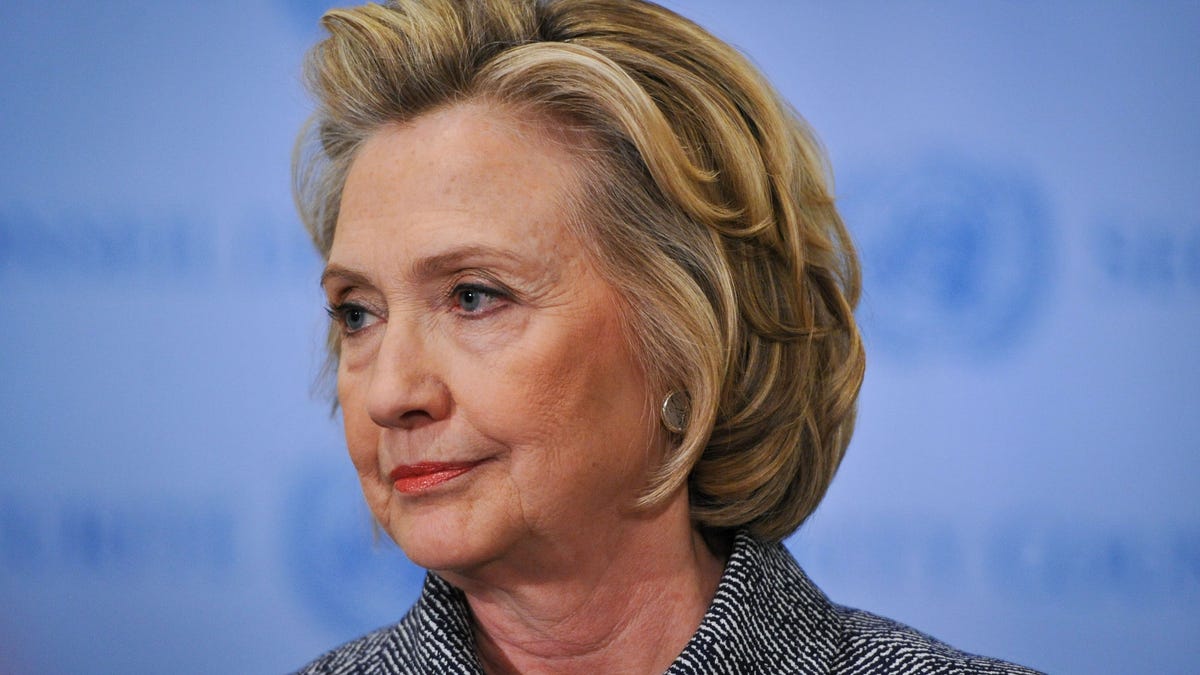On encryption, Clinton tells Silicon Valley to be a team player
Democratic presidential candidate tells tech companies they need to help track down terrorists but stops short of calling for weaker encryption. It's a balancing act between security and privacy.

Hillary Clinton told Silicon Valley to stop seeing the US government as its adversary in a speech Thursday on national security.
Hillary Clinton wants Silicon Valley to stop being so obstinate.
That's the message from the Democratic frontrunner in the US presidential race following attacks in Paris last week that renewed debate about technology's role in terrorism. Clinton told the tech industry it can't simply ignore the federal government's need to track down extremists.
"We need Silicon Valley not to view government as its adversary," Clinton said Thursday at a speech on national security at the Center on Foreign Relations in New York.
Policy makers have expressed concerns that terrorist groups are benefiting from encryption, or technology that jumbles communications and files so that only the intended recipient can read them. Tech companies have increasingly built encryption into products and services in the wake of revelations about US government surveillance programs from documents leaked by former NSA contractor Edward Snowden.
Apple's iMessage text message program uses encryption, as does Facebook's WhatsApp. Google, Yahoo and a bunch of other tech companies have begun scrambling information being sent between their servers. These security features, which aim to keep prying eyes from seeing what's going on inside, are often now turned on by default and easy to use.
The debate over encryption roared back to life amid speculation that Islamic terrorists used encrypted technology to plot and carry out the attacks in Paris that left 129 dead and hundreds more wounded. US Sen. Dianne Feinstein on Monday suggested technology companies are aiding terrorists by making it easy to have encrypted conversations. There's no evidence yet the attackers in Paris used encrypted technology.
"If you create a product that allows evil monsters to communicate in this way...that is a big problem," Feinstein said.
Fear and panic over potential follow up attacks have raised questions about whether the technology industry has a duty to help the government view encrypted conversations in the name of stopping terrorism. Tech companies have countered that it's impossible to let government agencies break encryption without letting criminals do the same.
Clinton, a former secretary of state, senator and first lady, in her speech struck a delicate balance between pressuring the industry and outright saying tech companies should break encryption in the fight against extremist groups.
"We need to challenge our best minds in the private sector to work with our best minds in the public sector to develop solutions that will both keep us safe and protect our privacy," she said.
Encryption doesn't just keep the US government out of electronic communications. It also protects data that might be stolen by hackers, whether they're working for a crime ring or a foreign government. After a year of relentless data breaches that let hackers steal Social Security numbers, health records and intellectual property, cybersecurity experts are encouraging companies to encrypt more data, not less.
Tech companies generally aren't able to read encrypted customer data. This has frustrated governments, which even with a court order are often unable to access devices or information.
Federal officials have repeatedly request an option that wouldn't weaken encryption for everyone but still make it possible for law enforcement to track potential foreign spies and violent extremists. Clinton gave the example of social media companies aggressively shutting down accounts that "plan, provoke, or celebrate violence."

